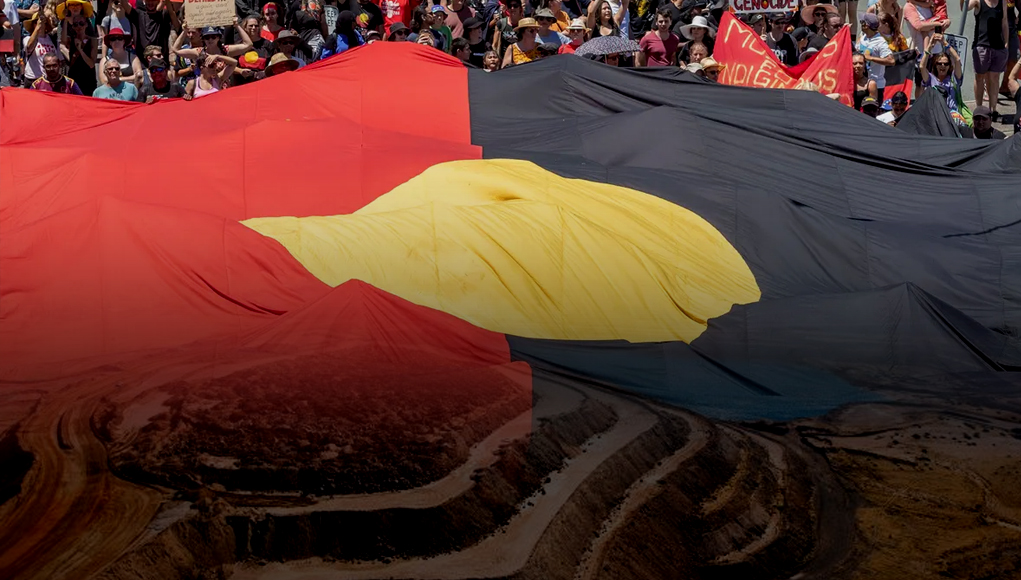The Rolling Stones were wrong: you can always get what you want if you are patient and the taxpayer foots the bill. And if you forum shop.
So it was with a recent native title ‘victory’ at the High Court of Australia. The Court overturned a decision of the full court of the Federal Court of Australia.
Native title holders at the Macarthur River in the Northern Territory wanted a say over a new tailings dam associated with the mining and transhipment of zinc-lead-silver ore. Fair enough. The McArthur River Project ore concentrate must travel 120 kilometres by road to the “Bing Bong” loading facility located on the Gulf of Carpentaria. It is loaded onto a bulk-carrier vessel for transhipment to larger ocean-going ships.
This part of the Gulf is shallow, and the bulk carrier must use a navigation channel, which needs to be maintained by regular dredging. The resulting dredged sediment is pumped onshore to a Dredge Spoil Emplacement Area, which has been filling up. In 2013, Mt Isa Mines applied for a new mineral lease under the Mineral Titles Act 2010 (NT) to construct a new area on a pastoral lease near the Bing Bong loading facility.
This is the real agenda: further elaboration of rights and expanding power to extract more rent from mining.
The Northern Land Council sought to prevent the issue of the minerals lease and a declaration that the proposed grant of the lease was invalid because the procedures under their preferred section of the Native Title Act had not been followed.
The High Court ordered that the Northern Territory Minister be restrained from deciding the application for the future act until the completion of the procedures under the Native Title Act. The High Court had to decide whether, besides freeholder rights, the native title claimants had a right to object under native title. It seems they did.
Imagine fighting all the way to the High Court of Australia: first the Federal Court, then appealing to a full bench of the Federal Court, and then to the High Court. The time and cost to Australian taxpayers are enormous. And for what?
The victory was that the High Court resolved differing interpretations of the meaning of the phrase “right to mine for the sole purpose of the construction of an infrastructure facility… associated with mining” in the context of the 633-page Native Title Act 1993 (Cth).
The key was whether native title holders had access to one ‘notification, objection and consultation procedure’ under the Native Title Act, or to another procedure under the same Act. It was either the same procedural rights as the holders of ‘ordinary title’ land or additional procedural rights to object to the future act and have those objections heard by an ‘independent person’.
If that wasn’t sufficiently indulgent, the applicants were entitled to processes under the Mineral Titles Act 2010 (NT), a right to negotiate procedure, and a right to be heard at the Northern Territory Civil and Administrative Tribunal, or have an Indigenous Land Use Agreement. Indeed, an ILUA was commenced in 2021 before the appeal to the full court of the Federal Court.
You can always get what you want if you are patient and the taxpayer foots the bill.
The decision by the High Court relates to one set of facts about what constitutes a mining operation. This may or may not provide a guide to any other disputes between native title holders and miners. At the outset there were six families involved in discussions on the mine. Three families were not directly affected but have now been drawn into the ILUA. The context is important; there are no other major economic bases in the region; the mine and associated works are it. Twenty three per cent of the workforce are Aboriginal.
This matter started in 2013. The mine and its associated infrastructure began in 1992. The original applicant for the objection died before the courts resolved the matter. For whom is this a victory?
The Northern Land Council hoped this decision would prompt the mining company to ‘engage proactively and in good faith with the native title holders, through their … legal representatives, to obtain free, prior and informed consent before further disturbing their native title.’ There is no evidence it did not, but it probably spoke to the native title holders in preference to the NLC and its lawyers.
The term ‘free, prior and informed’ is taken from the UN Declaration on the Rights of Indigenous Peoples. This is the real agenda: further elaboration of rights and expanding power to extract more rent from mining. If Aborigines keep playing this rent-seeker game, they will never escape poverty, and the culture that holds them in a state of dependence on public servants and land councils will remain.
Gary Johns is chair of Close the Gap Research
Thank you for your support. To help us in our battle to protect liberty and freedom please click here

Dr Gary Johns served as former Assistant Minister for Industrial Relations, Special Minister of State & Vice-President of the Executive Council in the Keating Labor Government. A philosophical rethink saw him accept a series of appointments in the service of economic rationalism, including Senior Fellow at the IPA and Assoc. Commissioner at the Productivity Commission. He recently served as Commissioner of
the Australian Charities and Not-For-Profits Commission.









